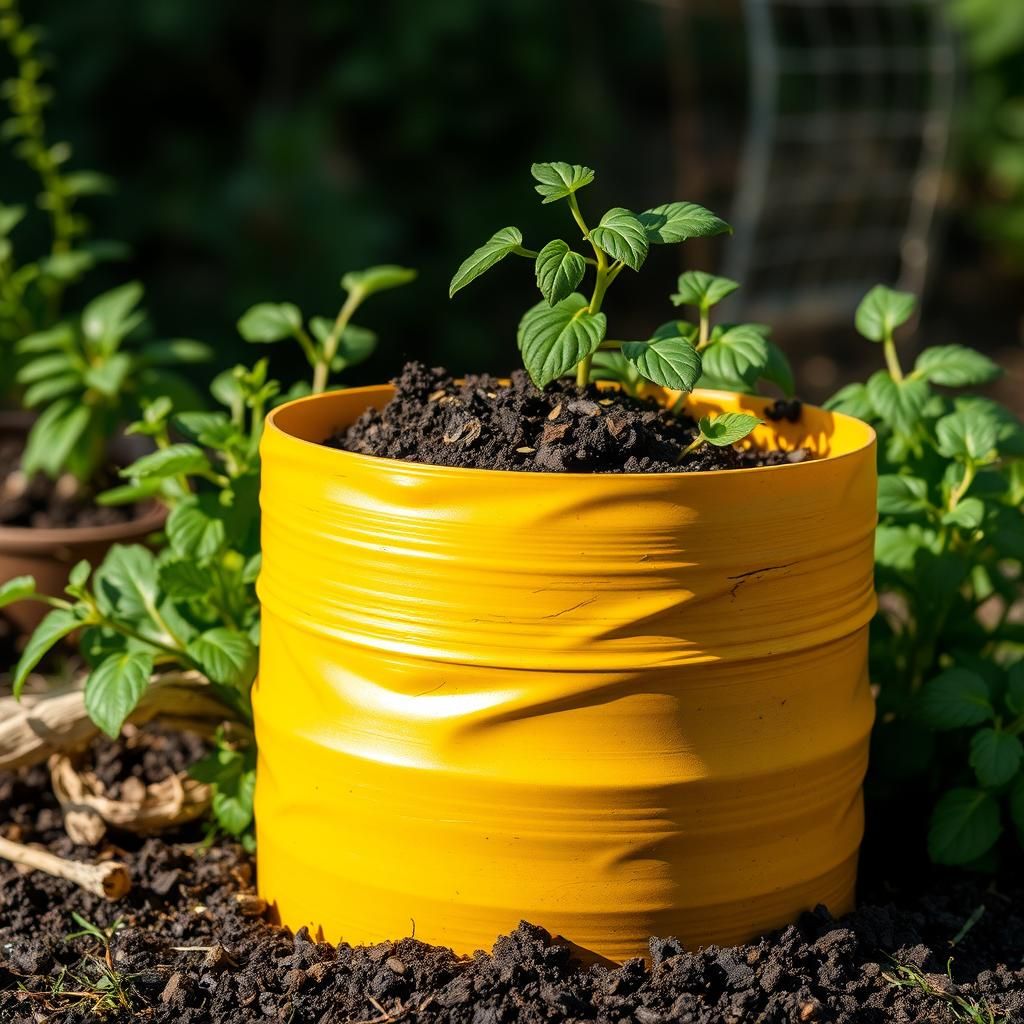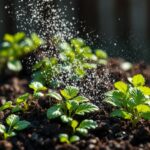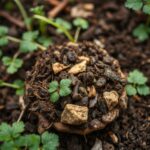How Long Does Compost Take? A Complete Guide to Composting Timeframes

Composting is an eco-friendly practice that transforms organic waste into nutrient-rich soil, but one common question many beginners have is, How long does compost take? Understanding the timeframes involved in composting can help you manage your expectations and ensure successful results. Factors such as materials used, composting methods, and environmental conditions all play a crucial role in the speed of decomposition. This complete guide will delve into the various timeframes associated with composting, offering tips and insights to help you streamline the process and create healthy compost for your garden in no time.
How Long Does Compost Take to Decompose?
The time it takes for compost to decompose can vary widely, typically ranging from three months to two years, depending on several factors including the materials used, the composting method, and environmental conditions. For instance, a well-maintained compost pile that incorporates a balanced mix of green (nitrogen-rich) and brown materials (carbon-rich), is aerated regularly, and kept at the right moisture level can produce finished compost in about three to six months. In contrast, a less active compost bin with inadequate maintenance could take up to two years to transform organic waste into usable compost.
Factors Affecting Composting Time
The time required for compost to mature is influenced by several factors, including the size of the compost pile, the type of organic materials, and the environmental conditions such as temperature and moisture. Smaller piles tend to heat up more quickly, promoting faster decomposition, while larger piles may require more time to break down. Additionally, materials like food scraps and yard waste decompose faster than items like wood chips or cardboard, which can take longer to break down.
Different Composting Methods
The method used for composting significantly affects the duration of the process. For example, hot composting, which involves maintaining high temperatures through frequent aeration and careful balancing of materials, can yield compost in about two to three months. Meanwhile, cold composting, which is much less labor-intensive and involves simply piling organic waste in a heap, can take six months to two years to produce finished compost, depending on the factors mentioned earlier.
Temperature's Role in Composting
Temperature plays a crucial role in the composting process, as higher temperatures help to accelerate the breakdown of organic materials. The ideal composting temperature ranges between 130°F to 160°F (54°C to 71°C), where beneficial microorganisms thrive and decompose materials efficiently. Maintaining this temperature through active management of the compost pile can lead to significantly shorter composting times, while lower temperatures could result in slower decomposition.
See also:
The Importance of Aeration
Aeration is essential for promoting aerobic decomposition in a compost pile. Regularly turning the compost increases airflow, which in turn speeds up the breakdown process. If a compost pile is compacted or lacks oxygen, it may become anaerobic, leading to slower decomposition and potentially foul odors. By ensuring a well-aerated compost pile, the breakdown time can be considerably reduced to just a few months.
The Role of Moisture Content
Moisture content is vital for effective composting, as it helps in the decomposition process and supports the microorganisms that break down organic matter. The ideal moisture level is around 40% to 60%; too little moisture can slow down decomposition, while too much can create a soggy environment that hampers airflow. Monitoring and adjusting the moisture content can help achieve optimal composting conditions, resulting in faster compost production.
| Composting Method | Time Frame |
|---|---|
| Hot Composting | 2 to 3 months |
| Cold Composting | 6 months to 2 years |
Factors Influencing Composting Time
The time it takes to produce compost varies significantly based on several factors including the composition of the materials, the size of the pile, moisture levels, and the frequency of turning. For instance, a compost pile with a mix of nitrogen-rich greens and carbon-rich browns will decompose faster than one composed strictly of either. Proper aeration, achieved by regularly turning the pile, helps speed up the breakdown process by increasing oxygen flow, which is critical for the microbes responsible for decomposition. Additionally, maintaining an optimal moisture level—similar to a damp sponge—can further accelerate composting, resulting in rich compost in as little as three months to a year.
Types of Composting Methods
Different composting methods can significantly affect the time it takes to produce compost. Traditional methods, such as the heap or bin techniques, can take months to a year based on management practices. In contrast, methods like hot composting can generate usable compost in a matter of weeks by maintaining high temperatures to speed up the decomposition process. Each method has its pros and cons, and the choice depends on the individual's goals and resources available.
Importance of Particle Size
The size of the materials added to the compost pile is crucial for determining the speed of decomposition. Smaller pieces decompose faster because they expose a greater surface area to microbes and other decomposers. Cutting or shredding larger items such as branches, leaves, and food scraps can significantly reduce composting time, often turning materials that would take a year to break down into compost within three to six months.
See also:
Temperature's Role in Composting
Temperature plays a central role in the composting process, as higher temperatures promote faster decomposition. The ideal temperature range for optimal microbial activity is between 130°F and 160°F (about 54°C to 71°C). When temperatures rise above this range, it may indicate that the pile is too dry or lacks sufficient nutrients. By monitoring and managing the temperature of your compost pile, you can ensure efficient composting, often achieving finished compost much quicker than a pile that stays at a lower temperature.
Moisture Content in Composting
Maintaining the right moisture content is essential for effective composting. Compost needs to be kept relatively damp, resembling a sponge, which allows microorganisms to thrive. Too much moisture can lead to anaerobic conditions that slow down the composting process and produce unpleasant odors. On the other hand, insufficient moisture can hinder microbial activity, extending the time needed to create compost. Regularly checking and adjusting moisture levels ensures a balanced environment, significantly affecting the composting timeframe.
The Role of Aeration in Composting
Aeration is vital for composting, as it introduces oxygen into the pile, facilitating the aerobic breakdown of organic materials. Turning the compost pile every few weeks helps maintain airflow and speeds up decomposition by keeping the microbes that require oxygen thriving. Neglecting aeration can lead to anaerobic conditions, resulting in a slower composting process. Proper aeration can reduce the composting time from several months to just weeks, making it one of the simplest yet most effective methods to enhance compost production efficiency.
Questions from Our Readers
How long does compost take to decompose?
The time it takes for compost to decompose varies, but on average, it can take three to six months. Factors like temperature, moisture, and the materials used can significantly affect decomposition speed.
What can I do to speed up composting?
To speed up composting, ensure you maintain a good balance of greens and browns, chop materials into smaller pieces, and turn the pile regularly to increase oxygen flow, which accelerates the process.
See also:
Does the type of compost affect decomposition time?
Yes, different types of compost, such as hot composting and cold composting, have varying decomposition times. Hot composting can produce ready compost in just a few weeks, while cold composting may take up to a year or more.
Can composting in colder climates take longer?
Absolutely, composting in colder climates can slow down the process, as low temperatures hinder microbial activity. In such conditions, it may take longer for organic materials to break down properly.

If you want to read more articles like How Long Does Compost Take? A Complete Guide to Composting Timeframes, we recommend you check out our Compost category.
Leave a Reply
Related Articles